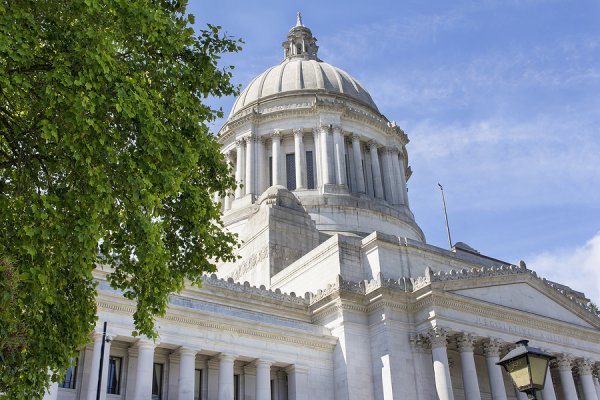Sean Parnell is vice-president of public policy for The Philanthropy Roundtable, a national organization representing approximately 660 family foundations, community foundations, and individual philanthropists. Parnell wrote the following opinion piece about the Washington DISCLOSE Act of 2018.
America has a rich tradition and culture of philanthropic giving, which helps to explain why charitable giving in our nation far exceeds that of any other country. A key part of that culture of philanthropy has been allowing donors to decide for themselves whether to publicize their giving or keep it private. Unfortunately, the state legislature is currently considering campaign finance legislation that would not only undermine this bedrock principle but would also jeopardize important First Amendment rights.
Why would philanthropists want to keep their giving hidden from the public? For many, it’s a matter of following religious convictions – the Bible urges Christians to “not do your charitable deeds before men,” while the Jewish rabbi and scholar Maimonides ranked anonymous giving quite highly in his writings on the subject. Islam and Buddhism also favor anonymous charity.
For others, it’s simply a practical matter of wanting to avoid unsolicited requests for contributions. George Eastman, the founder of Eastman-Kodak, anonymously gave $10 million over a century ago to the Massachusetts Institute of Technology. He was later unmasked as the donor, and The New York Times noted that Eastman “had abundant occasion to regret that his identity is no longer a secret… he has become quite aware of the perils beset the paths of those pursued by the advocates of endless worthy causes.”
Sometimes charitable donors simply don’t want the attention a large gift might bring to them, or to family members. One recent donor to Florida Atlantic University requested anonymity because his daughter was a student at the school and he didn’t want to draw any attention to her.
Many donors who give anonymously are concerned about activists and politicians seeking retribution if they give to controversial causes, like a think tank commenting on policy matters or a group supporting immigrants. In recent years donors have lost jobs, had their businesses boycotted, and received death threats.
It also turns out that nearly every charity is controversial to someone – a homeless shelter in Atlanta, Georgia has been fighting efforts by the city to close it down and build a combined police and fire station on the land. It received more than half a million in anonymous contributions to help pay off an overdue water bill, which the executive director of the shelter explained was because “Anytime a donor appears and is public with us that donor gets attacked.”
It was because of concerns of this sort of retribution that the U.S. Supreme Court ruled in 1958 that the state of Alabama could not force the NAACP to turn over its membership list, rightly seeing this disclosure as a serious threat to freedom of speech and freedom of association.
So what does all of this have to do with a campaign finance bill? A bill known as the Washington State Disclose Act of 2018 would force nonprofits to reveal their donors if they even mention a candidate’s name in many of their communications, such as newsletters or fundraising appeals. This would include a 501(c)3 charity that is not at all attempting to influence an election (charities are in fact prohibited by the federal tax code from intervening in candidate elections), but is simply communicating with donors, clients, or the public on policy or legislative matters.
Consider a blog post put up by the Washington Low Income Housing Alliance following the end of the last legislative session, dated June 30, 2017. It includes discussion of legislation offered by Rep. Nicole Macri of Seattle that the group favors, and mentions her by name. If the Alliance did this again in late June of 2018 and were to mail out its end-of-session analysis to donors, allies, or others with an interest in the group’s work, it could be found to have engaged in an electioneering communication because it mentioned a candidate (assuming Rep. Macri runs for re-election) within 60 days of the August 7, 2018 primary.
A charity that mails out a fundraising letter that simply mentions its work to ensure the “Governor’s budget” addresses key community needs could likewise be forced to reveal its donors.
Washington’s nonprofit charities do important work sheltering the homeless, feeding the hungry, enriching culture, educating citizens, and promoting justice. Quite often, this requires them to comment on matters before the legislature, something this bill in its present form would make difficult if they also want to honor their donors’ requests for privacy. Rather than drag charities into the world of campaign finance regulation (which would also impose significant administrative burdens on them), the bill’s advocates should recognize that 501(c)3 organizations cannot intervene in elections and should not be included in the bill’s provisions.
Your support matters.
Public service journalism is important today as ever. If you get something from our coverage, please consider making a donation to support our work. Thanks for reading our stuff.











